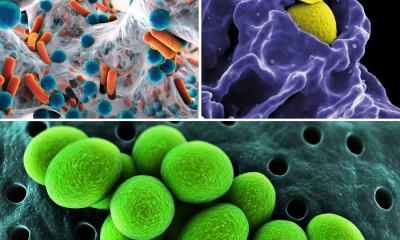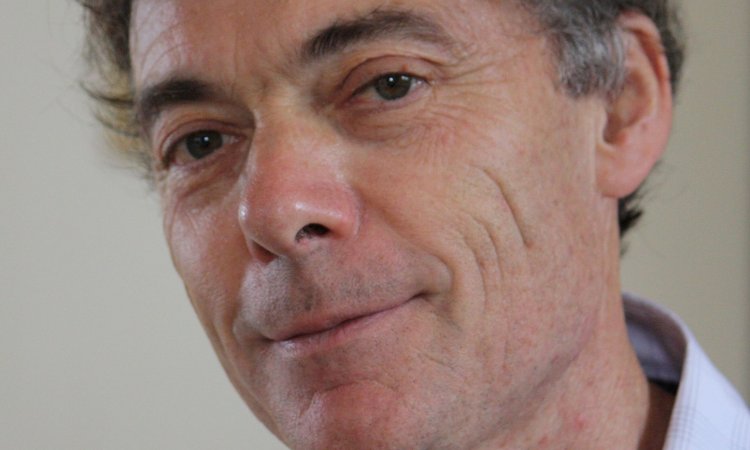Article • AMR Insights platform
Antibiotic resistance: a global problem in urgent need of solutions
Antibiotics have been at the heart of modern healthcare since the 1950s. They are prescribed prior to an operation to minimise the risk of infection after the operation. Or antibiotics are prescribed to fight an infection. This practice, which might seem straightforward at first glance, has proven to cause a number of problems itself: Over the last twenty years, it has become increasingly clear that pathogenic and sometimes even life-threatening bacteria are becoming resistant to these antibiotics.
Report: Madeleine van de Wouw
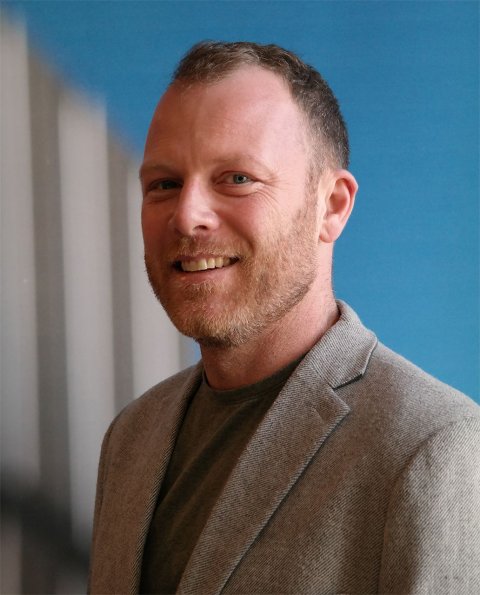
This results in persisting infections in humans and animals which cannot be controlled. Because of this, various types of medical interventions such as surgery, chemotherapy and stem cell therapy may become impossible. The development of new antibiotics might seem the obvious solution. However, most pharmaceutical industries do not see that a priority, because it is expensive and lengthy, often yields little to no profits – and more likely than not, a newly developed antibiotic will never even reach the market. 'We are therefore waiting for a huge crisis to happen,' says researcher Nathaniel Martin, PhD, and head of the Biological Chemistry department at Leiden University, the Netherlands.
'That's why as academic researchers we need to be proactive in addressing the issue of antibiotic resistance (AMR). We know that some bacteria become resistant because they can produce enzymes that break down antibiotics. We are trying to tackle that problem by developing enzyme inhibitors that prevent bacteria from destroying the antibiotics and thus maintaining their antibacterial activity. Another approach our research team is using to overcome resistance is by structurally modifying antibiotics. In this way, the bacteria are exposed to a "new" antibiotic to which they are not resistant. Now, several years into the research, we are testing how well these modified antibiotics cure infections in animals. This is still the preclinical phase, but the results so far are very encouraging. If we can show that these new antibiotics are safe and effective in animals, the next step is to test them on humans.'
Recommended article
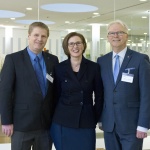
Article • Medication development
Support from the other end of the world
Partners who could hardly be further apart – yet have a lot in common – have united to fight resistant pathogens. The International Consortium for Anti-Infective Research (iCAIR) is based in Germany and Australia – separated by nearly 16,000 km as the crow flies. This has not stopped the research cooperation from achieving its objectives: the development of new agents against infections.
Educating professionals worldwide
However, Martin is convinced that there are more ways to prevent an increasing number of bacteria from developing resistance. For example, educating every prescriber of antibiotics is high on the agenda.
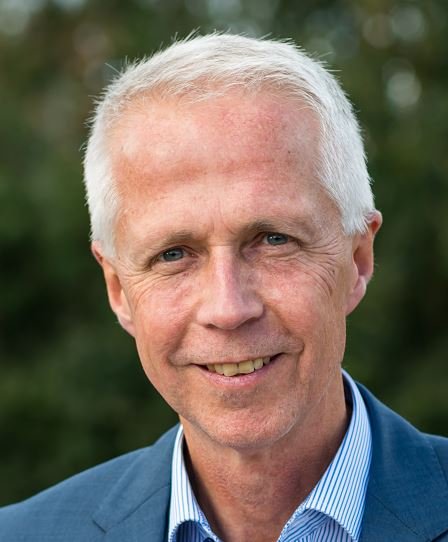
In fact, education and communication were the motivations for Molecular/Medical Microbiologist Maarten van Dongen, PhD, in coordination with twelve Dutch public and private organisations, to found AMR Insights in 2017. The information platform focuses entirely on combating the issue of antimicrobial resistance worldwide. 'The subject already had my attention, but when my neighbour died of an infectious disease, and there was no antibiotic that could save him, AMR came awfully close,' he says. 'There is a lot of research and information being generated on antimicrobial resistance worldwide. And that amount of information makes it difficult to determine relevancy and to keep abreast of the latest developments.' While staying on top of current events might be possible with some effort in the Western world, the expert says that this is much more difficult or even impossible in developing countries.
As a major cause of preventable deaths, AMR must be tackled now, Van Dongen stresses. 'Already each day around 800,000 people worldwide die, and according to the World Bank, AMR leads to extreme poverty in many places.' To reduce the prevalence of resistant bacteria in countries such as Belgium and Germany, but also in southern Europe, he advises to look to the Netherlands, where AMR is much less common. 'This is because in the Netherlands, we are cautious about prescribing and using antibiotics in humans and animals,' the microbiologist says. He also compliments the Dutch open-mindedness for new technologies, citing a type 1 diabetes app as a major inspiration for the AMR Insights platform: 'When I became involved with the app, I thought that a collection platform with information on antibiotic resistance should also be feasible,' Van Dongen recalls.
About the platform
The online expertise platform AMR Insights informs, educates and connects experts from different disciplines worldwide. Symposia and innovation missions are organised, and people can subscribe to the free newsletters. These contain information for people from different sectors; professionals in the human, animal, food, and environmental sectors can draw on the collected and tailored information to help them in their daily work. Updates on current research, such as the modification of antibiotics, which Martin’s team is working on, are also available on the platform. In addition, more than 300 ambassadors including researchers, doctors, veterinarians and entrepreneurs in some 60 countries work together to represent AMR Insights in the workplace. They are united under the project’s aim of maintaining antibiotic availability and effectiveness as well as preventing AMR from further threatening health and food safety.
Martin sees current antibiotic management in emergency consultations as a main driver of AMR: 'Here, a broad-spectrum antibiotic is often used until it is determined whether an infection is viral or bacterial and, in the latter case, what type of bacteria it is.' To put an end to this practice, solutions are needed to view and sequence the genome of bacteria more quickly, determining resistance profiles before medication is applied. 'As progress is made in diagnostics, this should also allow a more targeted approach to the use of antibiotics,' he says.
Another cause of resistance development is the widespread use of antibiotics in animals – to prevent disease or just to promote growth, the expert continues. As a result, antibiotics accumulate in humans through the consumption of meat and animal products. Furthermore, antibiotics-laden wastewater from institutions like animal farms and hospitals ends up in the ground water. Van Dongen: 'Good systems are needed to filter antibiotics and resistant bacteria from wastewater.' To this end, AMR Insights, together with medical industry association VIG and water treatment company EWS, established the Dutch Consortium Antibiotics and Medicinal Residues from Water in 2020.
Recommended article
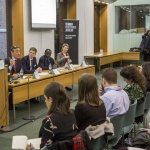
Article • Antibiotic resistance
End animal growth drugs to tackle superbugs
A major summit meeting in London, Great Britain, has seen politicians, doctors, scientists, farmers and other experts come together in a bid to tackle the growing global antimicrobial resistance (AMR) crisis. Among these experts was Dame Sally Davies, England’s Chief Medical Officer, who described AMR as a ‘problem without a face’ because most patients are not told they have a resistant…
Both Martin and Van Dongen believe that prevention of infectious diseases is one of the most important ways to prevent many antibiotics from working at all in the near future. They argue that, if people and animals do not become ill in the first place, antibiotics are not needed for their treatment, and further resistance does not develop. To this end, they point to the importance of good hygiene standards and Antibiotic Stewardship, which is crucial in monitoring the use of antibiotics in humans and animals, and the reduction of unnecessary antibiotic use through better and quicker diagnostics and tests.
Besides the development of new antibiotics and modification of existing types, the experts see the search for alternatives such as phages as another vital strategy. These are viruses that selectively attack bacteria and render them harmless. To fully exploit the potential of these solutions, Van Dongen says that this information must be made available worldwide to effectively tackle the antibiotic resistance problem. The platform aims to provide this information in a targeted manner, as relevant aspects are different for a veterinarian than, for example, for a general practitioner.
With sustainable funding, AMR Insights can go one step further to become a global information and knowledge platform with even more searchable information
Maarten van Dongen
Even though there is much to be done, Van Dongen remains optimistic about the future of AMR Insights: 'Now, our income consists of project income, contributions for participating in events and from sponsors. The objective is to change from short-term, project-related funding to long-term, programme-related funding. Then we will be able to set and realise our own objectives. With sustainable funding, AMR Insights can go one step further to become a global information and knowledge platform with even more searchable information.' Martin adds: 'A lot of money is needed for further research and clinical studies.' But while a current focus area is on the modification of antibiotics, it is certainly not the only way to tackle AMR, he concludes.
Profiles:
Maarten van Dongen is a Molecular and Medical Microbiologist. After attaining his PhD in Biochemistry at the University of Amsterdam, the Netherlands, he has worked for the international Pharma and Biopharma industry in the Netherlands, Switzerland, Finland and Belgium. He has gained extensive experience as a (project) manager of complex, international projects. As an advisor, Van Dongen is increasingly involved in projects in the field of antimicrobial resistance. In 2020, he founded the global AMR Insights Ambassador Network.
Nathaniel Martin obtained his PhD degree in 2004 from the University of Alberta, Canada, after which he performed postdoctoral studies at the University of California, Berkeley, USA. In 2007, Martin moved to the Netherlands, where he started an independent research career at Utrecht University. In 2018, Martin accepted a professorship at Leiden University where he currently holds a chair in Biological Chemistry. In Leiden, the Martin group works on developing new molecular strategies to address antibiotic resistance. With a firm foundation in bioorganic chemistry, the approaches used by the Martin lab include the design and synthesis of new antibiotics as well as developing small molecule inhibitors of different resistance mechanisms.
15.07.2021



